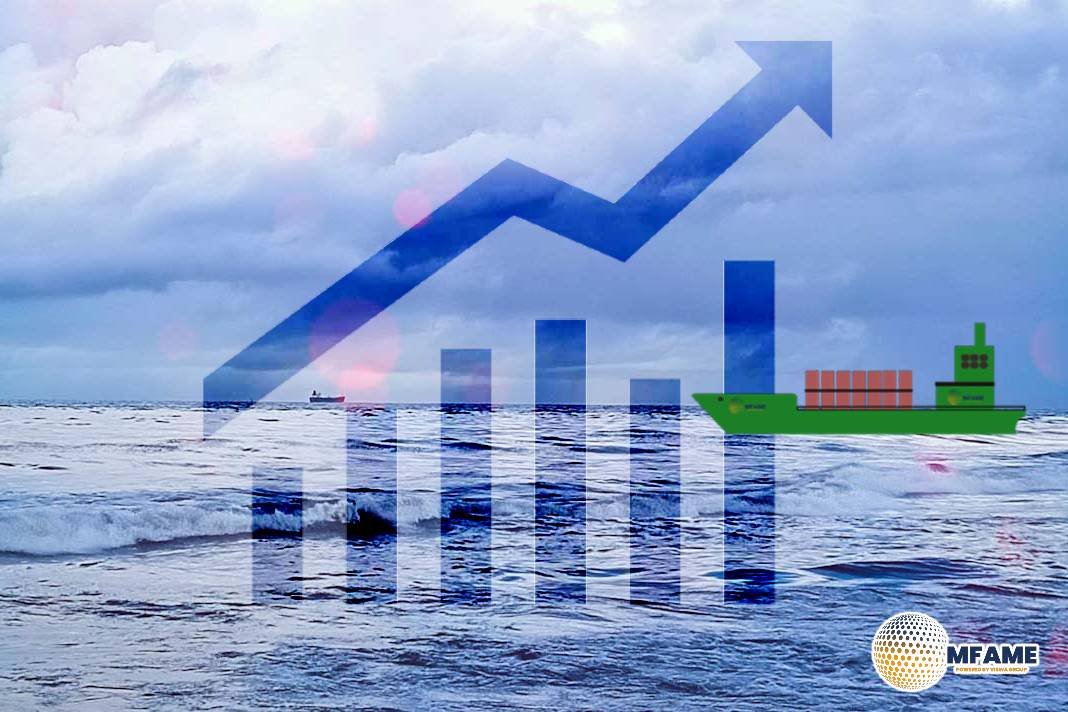 Singapore has made significant progress in the supply of alternative fuels as bunker sales of biofuel blends increased to 520,000 tonnes in 2023, which more than tripled from 140,000 tonnes in 2022, says an article published on offshore energy website.
Singapore has made significant progress in the supply of alternative fuels as bunker sales of biofuel blends increased to 520,000 tonnes in 2023, which more than tripled from 140,000 tonnes in 2022, says an article published on offshore energy website.
Summary
- Singapore’s bunker sales of biofuel blends increased to 520,000 tonnes in 2023, more than tripled from 140,000 tonnes in 2022.
- LNG bunker sales reached 110,000 tonnes in 2023, up from 16,000 tonnes in 2022. The MPA conducted the world’s first ship-to-containership methanol bunkering operation in July 2023.
- Singapore deployed new fully electric 200-passenger ferries and supply vessels in 2023. MPA’s recent call for Expressions of Interest (EOI) for methanol bunkering solutions reflects a proactive approach.
- Singapore achieved a record-breaking 51.82 million tonnes of bunker sales in 2023. The Digital Bunkering initiative, implemented in November 2023, aims to enhance efficiency and transparency in bunkering delivery documentation.
- The Port of Singapore reported an annual vessel arrival tonnage exceeding three billion gross tons for the first time. Container throughput reached a new high of 39.01 million TEUs, and cargo handling increased to 591.70 million tonnes in 2023.
Biofuel Bunker Sales Surge
Singapore reported substantial growth in the supply of alternative fuels, particularly biofuels, as bunker sales of biofuel blends skyrocketed to 520,000 tonnes in 2023, marking a remarkable threefold increase from 140,000 tonnes in 2022. Biofuel blends up to B30 are commercially available, with trials ongoing for blends up to B100. This progress underscores Singapore’s commitment to sustainable maritime practices.
LNG Bunker Sales And Methanol Bunkering Milestones
Liquefied natural gas (LNG) bunker sales also witnessed a significant surge, reaching 110,000 tonnes in 2023, a substantial increase from 16,000 tonnes in 2022. In a groundbreaking operation in July 2023, the Maritime and Port Authority of Singapore (MPA) conducted the world’s first ship-to-containership methanol bunkering operation, supplying about 300 tonnes of green methanol in the Port of Singapore. Additionally, the port welcomed its first methanol bunkering vessel.
Electric Vessels Deployment And Methanol Bunkering Initiatives
Singapore made strides in electrification, deploying new fully electric 200-passenger ferries and supply vessels in 2023, operating within port waters to support the local maritime ecosystem. MPA’s recent call for Expressions of Interest (EOI) for methanol bunkering solutions reflects a proactive approach, seeking proposals for end-to-end methanol bunkering scheduled to be implemented in 2025. The port authority is also developing standards for vessel electrification, cybersecurity, and new bunker fuels like methanol and ammonia.
Record-Breaking Bunker Sales And Port Performance
In 2023, Singapore achieved a record-breaking 51.82 million tonnes of bunker sales, surpassing the previous record of 50.64 million tonnes in 2017. Alternative fuels constituted 1.2% of the total bunker sales, with expectations of continued growth in the coming years. The Digital Bunkering initiative, implemented in November 2023, aims to enhance efficiency and transparency in bunkering delivery documentation, potentially saving up to 40,000 man-hours annually when fully implemented.
Overall Maritime Achievements
The Port of Singapore reported an annual vessel arrival tonnage exceeding three billion gross tons for the first time, reflecting a 9.4% increase over 2022. Container throughput reached a new high of 39.01 million TEUs, and cargo handling increased to 591.70 million tonnes in 2023. Singapore retained its position as the world’s top maritime center for the 10th consecutive year, according to the Xinhua-Baltic International Shipping Centre Development Index.
Singapore’s Geopolitical Readiness
The MPA emphasized its readiness to assist ships and support shippers in the face of geopolitical uncertainties and potential disruptions to key shipping routes and global supply chains. The port stands ready to help vessels “catch up” on their schedules if supply chain disruptions persist.
Did you subscribe to our daily Newsletter?
It’s Free! Click here to Subscribe
Source: offshore energy















